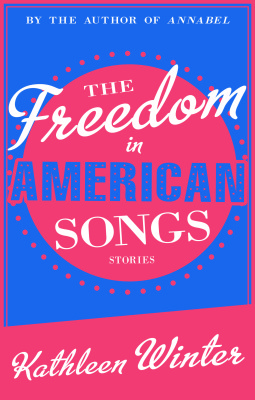
The Freedom in American Songs
Kathleen Winter
Biblioasis
$19.95
paper
168pp
978-1-927428-73-3
Afghanistan and Canada: Is There An Alternative To War? is a collection of essays about one of the most controversial Canadian military involvements in recent memory. Edited by Lucia Kowaluk, a grass-roots community organizer, and Steven Staples of the Rideau Institute, a research, advocacy, and consulting group on public policy issues in Ottawa, contributors include experts such as Asad Ismi (who contributed an interview with Afghan MP Malalai Joya), Pierre Beaudet (Professor at the University of Ottawa), Tariq Ali, and Linda McQuaig. These writers seek not only to educate and inform readers, but also to bring into focus what they consider to be the real reason Canadian soldiers are risking their lives: the United States’ desire to turn Afghanistan into a corridor from which to access and control the untapped oil resources of Central Asia. After reading a few of these persuasively written chapters, one cannot help but believe that Canada is in Afghanistan for all the wrong reasons.
A photographic survey of Afghani daily life opens the book, setting the mood and establishing context. Each photograph in this survey, which is only a few pages long, gives a small taste of how much better life in Afghanistan could be. For example, one photograph shows three Afghani men holding up their voting cards, a hopeful gesture which demonstrates the desire for change. The subsequent essays are arranged in a series of interlinked topics that can easily stand as separate reads. The sequence in which the essays are presented is questionable. One particular section called “Women’s Question” would have been better positioned at the beginning of the book as it gives an extremely informative overview of the rights of Afghani women, both past and present, as well as Afghani life in general. The emotional overtones and historical perspectives in this section would help establish a stronger connection between the reader and the people of Afghanistan if it immediately followed the photographic material.
The essays in this collection, which are academic in tone, contain many notes and references to substantiate the writers’ assertions. There are, however, passages that merely express opinions. For example, the organization Échec à la guerre asserts in one essay, without proof, that Canada would have suffered political and economic repercussions had it not joined the United States and its allies during the weeks that followed 9/11. But this becomes less important once the reader absorbs the organization’s claims as a whole and the facts put forth to support them.
This book is not bedtime reading and, at times, its content is frustrating simply because its subject matter is difficult to confront. It does, however, provide the reader with an alternative view of the Afghanistan conflict. Afghanistan and Canada will appeal to readers who are sympathetic to Noam Chomsky’s political views. And as with Chomsky’s books, Afghanistan and Canada must be read more than once if readers are to understand a conflict that is much more complex than portrayed in the mass media. mRb






0 Comments